
Alicante: The Jewel of Spain's Costa Blanca
Alicante, nestled on Spain's southeastern coast, is a sun-drenched paradise where history and modernity blend seamlessly. This charming city, part of the famous Costa Blanca, offers an array of experiences, from its golden sandy beaches to its vibrant nightlife and rich cultural heritage. Alicante is not just a beach destination; it's a city with a soul, boasting historical landmarks, bustling markets, and delicious cuisine. Begin your journey at the iconic Santa Bárbara Castle, perched high above the city on Mount Benacantil. The castle offers stunning panoramic views of Alicante and the Mediterranean Sea, making it a perfect spot for photographers and history enthusiasts alike. Wander down to the historic old town, Barrio de la Santa Cruz, with its narrow streets, colorful houses, and hidden squares. Here, you can soak in the local atmosphere and perhaps enjoy a leisurely meal at one of the many traditional tapas bars. For those who love the sea, Alicante's Explanada de España is a must-visit. This beautiful promenade, lined with palm trees and a mosaic of marble tiles, stretches along the waterfront and is ideal for a relaxing stroll. The nearby marina is packed with yachts and boats, and you can take a ferry to the stunning Tabarca Island for a day trip. Alicante's beaches, such as Playa del Postiguet and San Juan Beach, are perfect for sunbathing, swimming, or engaging in various water sports. Alicante is also a city of festivals. The most famous is the Bonfires of Saint John (Hogueras de San Juan), held in late June. This lively event features parades, fireworks, and the burning of large wooden effigies. Throughout the year, the city hosts various cultural events, concerts, and exhibitions that showcase its rich artistic heritage. The local cuisine, with its emphasis on fresh seafood and rice dishes like paella, is another highlight, and no visit to Alicante is complete without sampling its culinary delights.
Local tips in Alicante
- Visit the Santa Bárbara Castle early in the morning to avoid crowds and enjoy cooler temperatures.
- Take a day trip to Tabarca Island for crystal-clear waters and excellent snorkeling opportunities.
- Try the local dish 'arroz a banda,' a traditional rice dish cooked in fish stock.
- Use public transport or walk around the city center as parking can be challenging in peak season.
- Plan your visit to coincide with the Bonfires of Saint John festival in June for an unforgettable experience.
Neighbourhoods in Alicante
Alicante: The Jewel of Spain's Costa Blanca
Alicante, nestled on Spain's southeastern coast, is a sun-drenched paradise where history and modernity blend seamlessly. This charming city, part of the famous Costa Blanca, offers an array of experiences, from its golden sandy beaches to its vibrant nightlife and rich cultural heritage. Alicante is not just a beach destination; it's a city with a soul, boasting historical landmarks, bustling markets, and delicious cuisine. Begin your journey at the iconic Santa Bárbara Castle, perched high above the city on Mount Benacantil. The castle offers stunning panoramic views of Alicante and the Mediterranean Sea, making it a perfect spot for photographers and history enthusiasts alike. Wander down to the historic old town, Barrio de la Santa Cruz, with its narrow streets, colorful houses, and hidden squares. Here, you can soak in the local atmosphere and perhaps enjoy a leisurely meal at one of the many traditional tapas bars. For those who love the sea, Alicante's Explanada de España is a must-visit. This beautiful promenade, lined with palm trees and a mosaic of marble tiles, stretches along the waterfront and is ideal for a relaxing stroll. The nearby marina is packed with yachts and boats, and you can take a ferry to the stunning Tabarca Island for a day trip. Alicante's beaches, such as Playa del Postiguet and San Juan Beach, are perfect for sunbathing, swimming, or engaging in various water sports. Alicante is also a city of festivals. The most famous is the Bonfires of Saint John (Hogueras de San Juan), held in late June. This lively event features parades, fireworks, and the burning of large wooden effigies. Throughout the year, the city hosts various cultural events, concerts, and exhibitions that showcase its rich artistic heritage. The local cuisine, with its emphasis on fresh seafood and rice dishes like paella, is another highlight, and no visit to Alicante is complete without sampling its culinary delights.
When is the best time to go to Alicante?
Iconic landmarks you can’t miss
Castell de Santa Bàrbara
Discover the rich history and stunning views at Castell de Santa Bàrbara, a magnificent castle that defines Alicante's skyline.
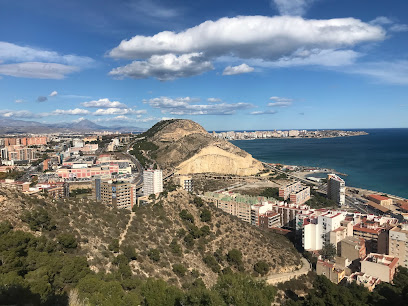
Archaeological Museum of Alicante
Explore the rich history of Alicante at the Archaeological Museum, where ancient artifacts and engaging exhibits await every curious traveler.
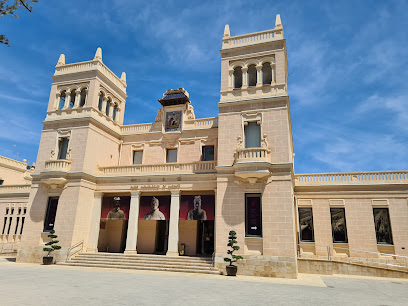
Parc El Palmeral
Explore the serene charm of Parc El Palmeral, a tranquil park in Alicante with lush gardens, waterfalls, and traditional Spanish architecture.
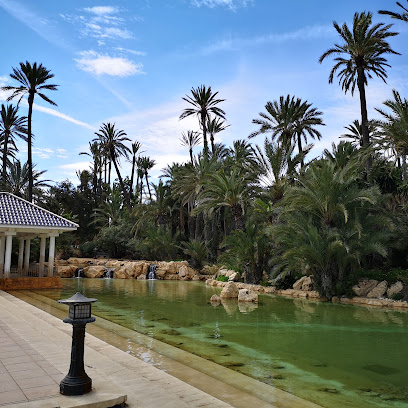
Alicante Bullring
Experience the cultural heart of Alicante at the historic Bullring, a venue for thrilling bullfights and vibrant events.
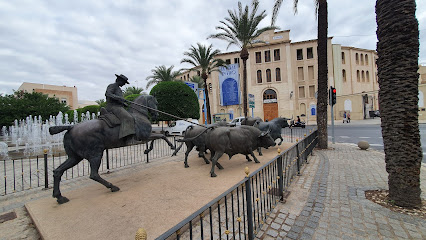
Cocatedral de Sant Nicolau de Bari d'Alacant
Explore the Co-Cathedral of Saint Nicholas of Bari in Alicante, a stunning blend of Renaissance architecture and rich cultural heritage in the heart of the city.
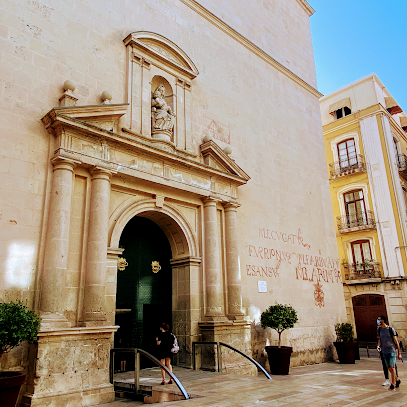
Plaça Sèneca
Explore the lush greenery and vibrant atmosphere of Plaça Sèneca, a tranquil park in the heart of Alicante, perfect for relaxation and cultural experiences.
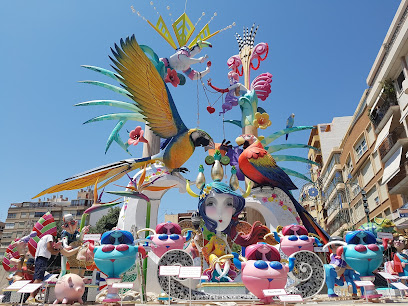
Parc Canalejas
Experience tranquility in the heart of Alicante at Parc Canalejas, a beautiful city park perfect for relaxation and cultural exploration.
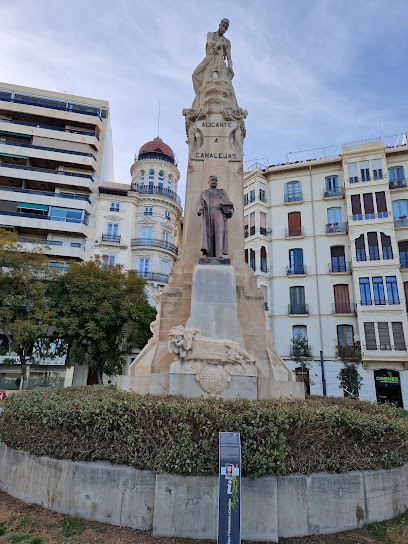
El Carrer dels Bolets
Experience the vibrant charm of El Carrer dels Bolets in Alicante, where delightful shops, restaurants, and local culture await your exploration.
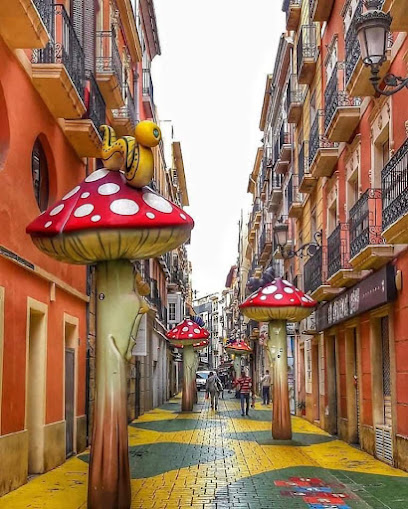
Parc de l'Ereta
Explore Parc de l'Ereta in Alicante, a serene park with stunning views, lush greenery, and tranquil spots perfect for relaxation and exploration.

Basilica of St Mary of Alicante
Discover the rich history and architectural beauty of the Basilica of St. Mary in Alicante, a must-see tourist attraction showcasing Gothic elegance.
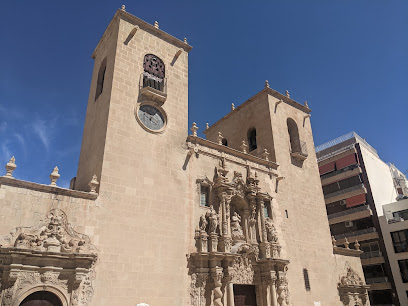
Casa Carbonell
Discover Casa Carbonell, a historic landmark in Alicante, blending stunning architecture with local culture along the vibrant Esplanade.
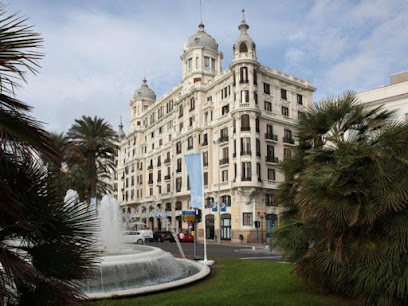
Santa Faz Monastery, Alicante
Discover the serene beauty and rich history of Santa Faz Monastery, a peaceful retreat near Alicante, perfect for spiritual reflection and cultural exploration.
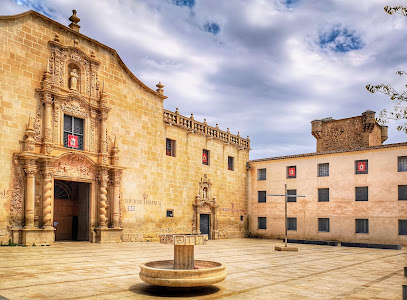
Castell de Sant Ferran
Explore the historic Castell de Sant Ferran in Alicante, a monumental fortress with stunning views and rich cultural heritage.
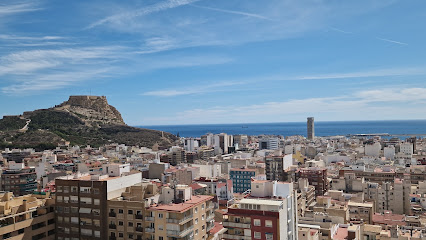
Plaça de la Porta de la Mar
Experience the vibrant atmosphere and rich history at Plaça de la Porta de la Mar, the heart of Alicante's cultural scene.
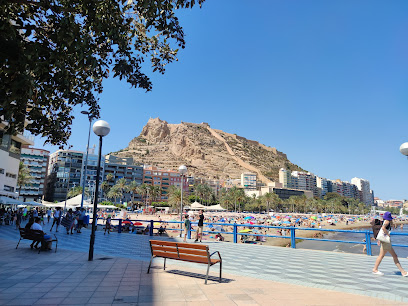
Cabo de La Huerta
Experience the breathtaking beauty of Cabo de La Huerta, a serene coastal park in Alicante, where nature meets tranquility and stunning Mediterranean views.
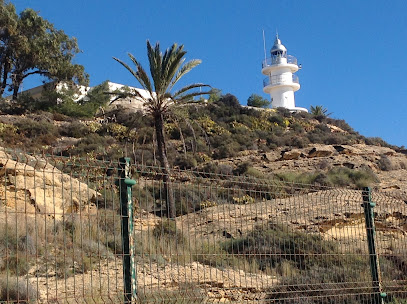
Unmissable attractions to see
Castell de Santa Bàrbara
Explore the historic Castillo de Santa Bárbara in Alicante, a majestic fortress offering stunning views and a glimpse into Spain's rich past.
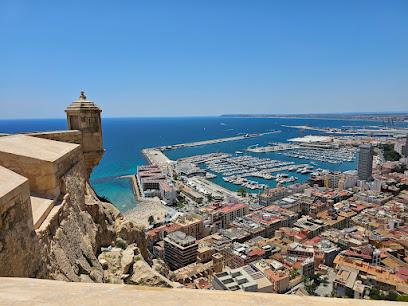
Mercat Central d'Alacant
Discover the Mercat Central d'Alacant, a vibrant market brimming with local delicacies, cultural charm, and culinary delights in the heart of Alicante.
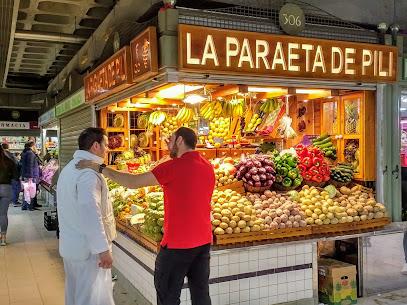
Fonts de l'Algar
Experience the enchanting natural beauty of Fonts de l'Algar, a top tourist attraction in Alicante, featuring stunning waterfalls and lush landscapes.
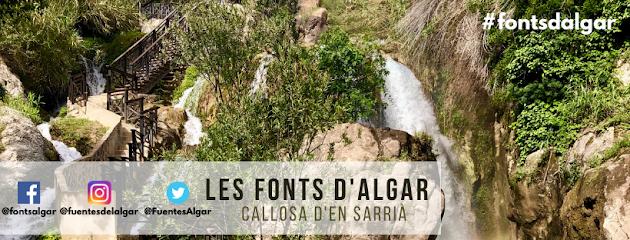
Castell de Guadalest
Explore the historic Castell de Guadalest, a stunning fortress offering breathtaking views and rich cultural experiences in Alicante, Spain.
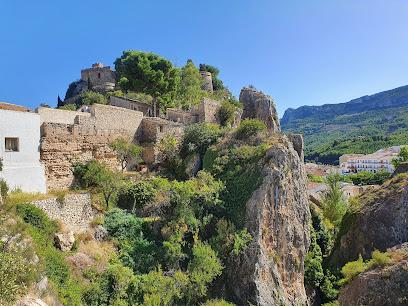
Aqualandia
Experience the ultimate water adventure at Aqualandia in Benidorm, where thrilling slides and family-friendly fun await under the sun.
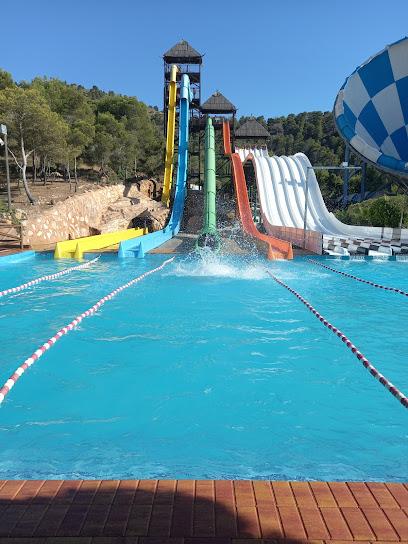
Terra Mítica
Experience the magic of ancient civilizations at Terra Mítica, Benidorm's premier amusement park with thrilling rides and captivating shows.
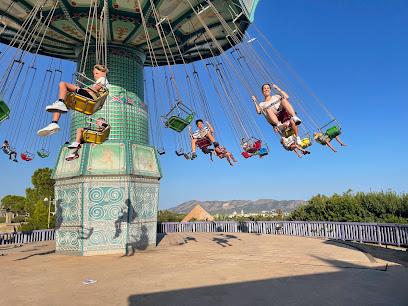
Terra Natura
Discover the wonders of wildlife and thrilling rides at Terra Natura, the premier zoo and theme park in Benidorm, Alicante, perfect for family fun.

Parc Natural de la Serra Gelada
Explore the stunning cliffs, diverse wildlife, and scenic trails of Parc Natural de la Serra Gelada, a must-visit destination on the Costa Blanca.
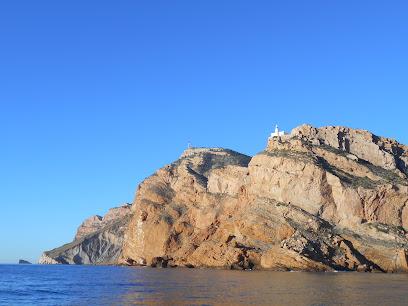
Huerto del Cura
Explore Huerto del Cura, a stunning botanical garden in Elche, rich in flora and history, perfect for a tranquil escape into nature.
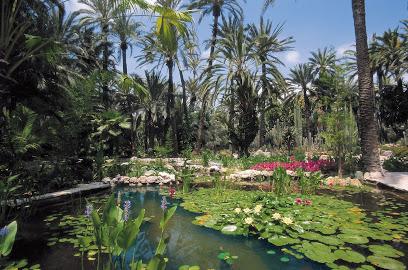
Parc El Palmeral
Explore the lush landscapes of Parc El Palmeral in Alicante, a tranquil park perfect for relaxation, family fun, and nature appreciation.
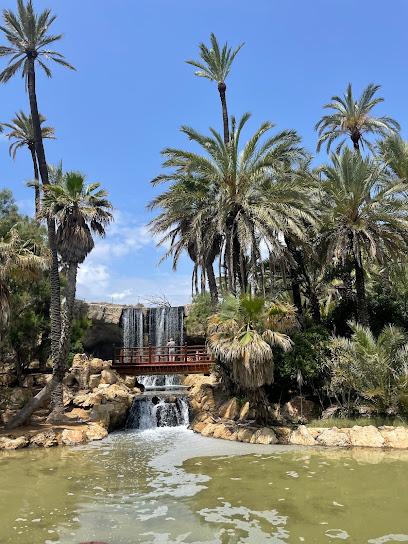
Canelobre Caves
Explore the stunning Canelobre Caves in Alicante, a natural wonder with breathtaking rock formations and rich historical significance.
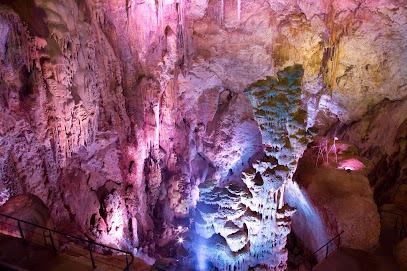
Valor Chocolate Museum
Explore the rich history of chocolate at the Valor Chocolate Museum in La Vila Joiosa, where indulgence meets education in a delightful setting.
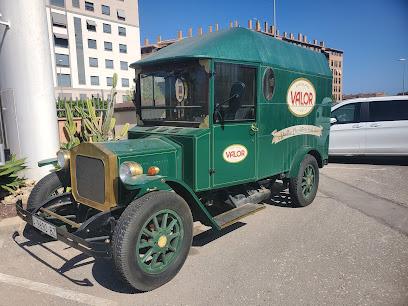
Castillo Fortaleza De Santa Pola
Explore the historical Castillo Fortaleza De Santa Pola, a stunning castle steeped in history and offering breathtaking views of the Mediterranean.
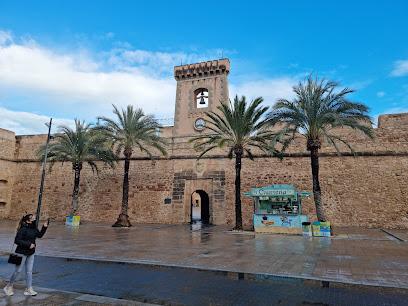
La Cruz de Benidorm
Discover La Cruz de Benidorm: a breathtaking observation point offering stunning views and a rich historical backdrop in the heart of Alicante's coastline.
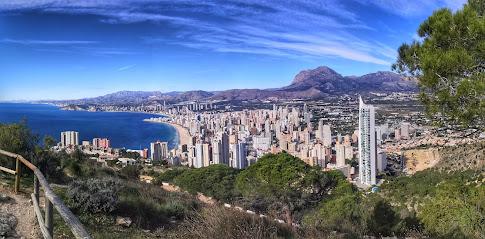
Teatre Principal d'Alacant
Discover the cultural heart of Alicante at Teatre Principal d'Alacant, a historic theater showcasing diverse performances in a stunning setting.

Essential places to dine
Nou Manolín
Experience authentic Mediterranean flavors at Nou Manolín in Alicante—where exquisite Spanish dishes meet vibrant tapas culture.
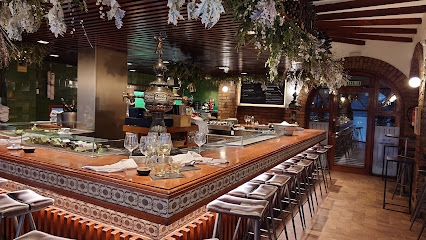
El Garaje Bar Alicante
Discover delicious tapas and vibrant nightlife at El Garaje Bar in Alicante - a culinary gem in Spain's coastal paradise.
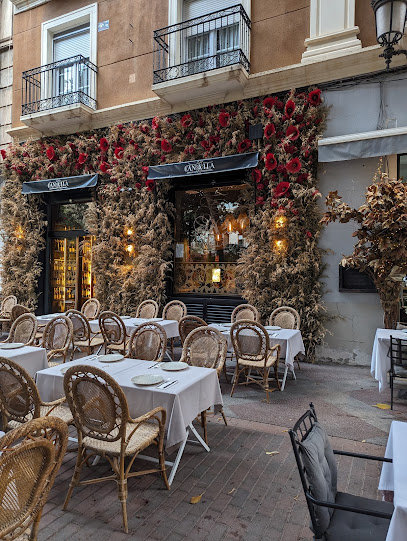
La Taberna del Gourmet
Experience exquisite Mediterranean flavors at La Taberna del Gourmet in Alicante—where tradition meets contemporary culinary art.
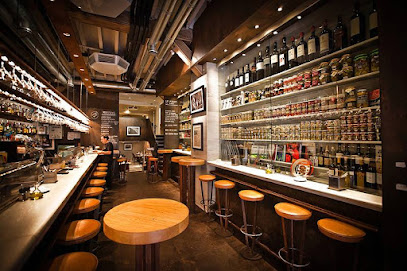
Mish Mish
Experience the unique flavors of Lebanon at Mish Mish – your go-to destination for vegan delights and brunches in the heart of Alicante.
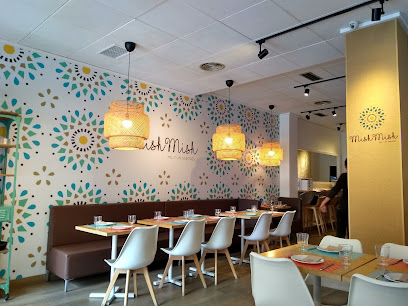
Restaurant Piripi
Experience authentic Mediterranean and Spanish cuisine at Restaurant Piripi in Alicante – where every dish tells a story.
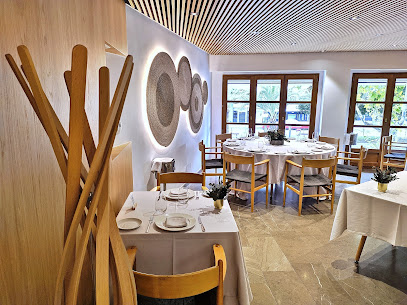
RESTAURANTE EL BUEN COMER
Experience authentic Spanish cuisine at Restaurante El Buen Comer, where Mediterranean flavors meet vibrant tapas in the heart of Alicante.
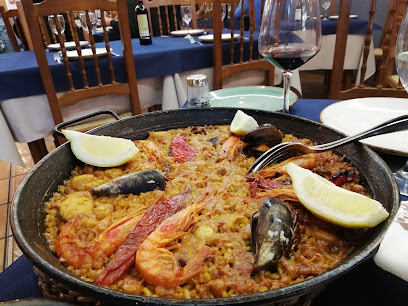
La Folie Alacant
Experience culinary delights and artistic vibes at La Folie Alacant—where gourmet burgers meet vibrant tattoo artistry in the heart of Alicante.
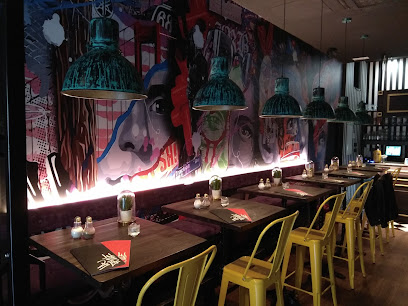
Terre
Experience exquisite Mediterranean cuisine at Terre in Alicante, where every dish tells a story of flavor and tradition amidst stunning coastal views.
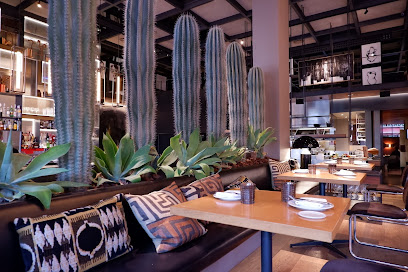
Bar El Cantó
Experience authentic Spanish tapas at Bar El Cantó in Alicante - where every dish tells a story.
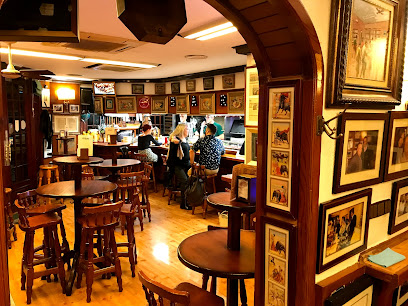
Racó del Pla
Experience authentic Spanish cuisine at Racó del Pla in Alicante – a must-visit destination for food lovers seeking Mediterranean delights.
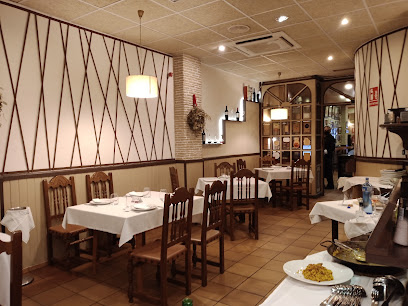
Monumental Restaurant Alicante
Experience authentic Mediterranean flavors at Monumental Restaurant Alicante, where fresh ingredients meet exceptional culinary artistry.
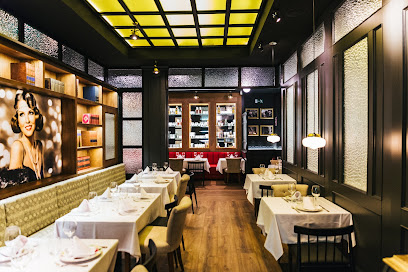
La Taverna del Racó del Pla
Experience authentic Mediterranean cuisine at La Taverna del Racó del Pla - a delightful tapas bar and rice restaurant in the heart of Alicante.
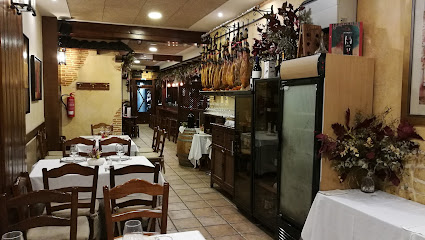
Nou Savoy | Restaurante Alicante |
Experience authentic Mediterranean flavors at Nou Savoy in Alicante, where every dish tells a story of tradition and taste.
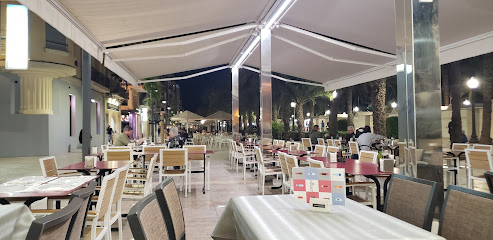
La Crispeta
Experience authentic Mediterranean flavors at La Crispeta, where traditional Spanish cuisine meets warm hospitality in the heart of Alicante.
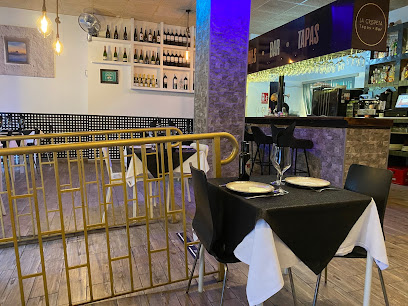
Alma de Barra
Discover Alma de Barra: A vibrant restaurant in Alicante serving exquisite Mediterranean cuisine and creative cocktails in an inviting atmosphere.
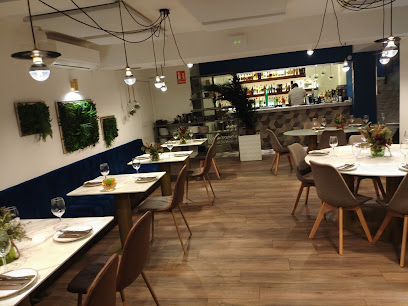
Markets, malls and hidden boutiques
Centro Comercial Plaza Mar 2
Discover a shopping paradise at Centro Comercial Plaza Mar 2, Alicante's go-to destination for shopping, dining, and entertainment.
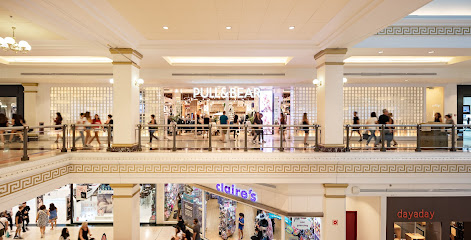
Centro Comercial Gran Vía
Discover Alicante's shopping haven at Centro Comercial Gran Vía, featuring diverse shops, delightful dining, and family-friendly entertainment.
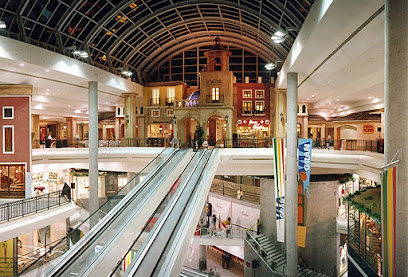
The Outlet Stores Alicante
Explore unbeatable deals and a fantastic shopping experience at The Outlet Stores Alicante, your go-to destination for incredible savings and family fun.
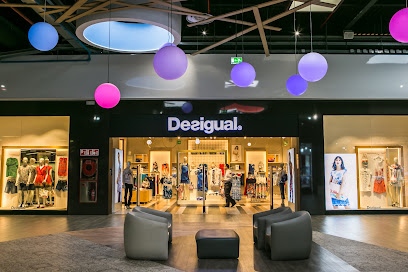
Flying Tiger
Discover unique gifts and whimsical treasures at Flying Tiger, Alicante's vibrant shop for creativity and fun.
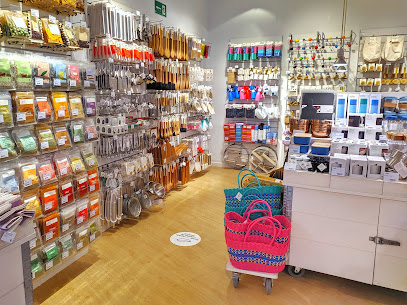
Boutique Nespresso Doctor Gadea
Discover a luxurious coffee experience at Boutique Nespresso Doctor Gadea in Alicante, where exquisite blends and stylish machines await every coffee lover.
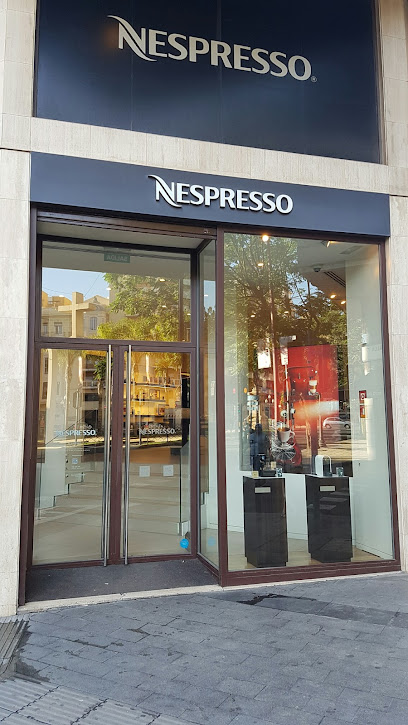
Parfois
Explore Parfois in Alicante for stylish fashion accessories, from bags to jewelry, perfect for elevating your wardrobe and enhancing your travel experience.
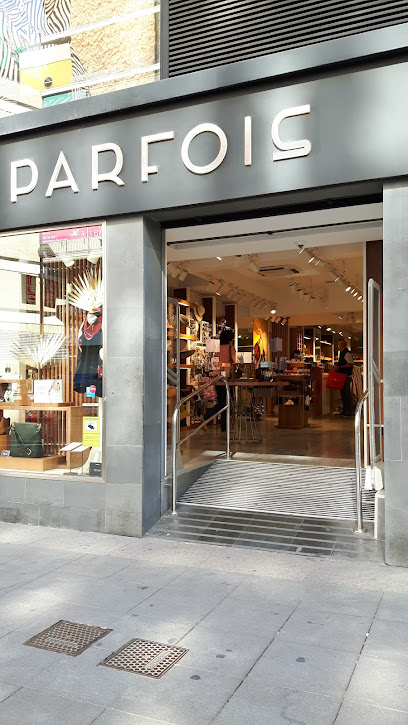
Friki's Shop Alicante
Discover Friki's Shop in Alicante for unique gifts and trendy T-shirts that capture the local spirit and make perfect souvenirs.
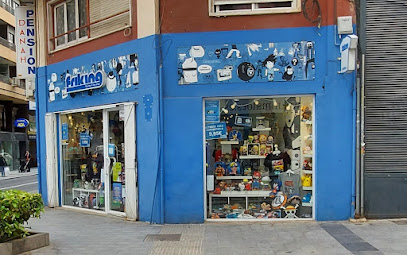
Trendsplant Store Alicante
Explore the contemporary styles at Trendsplant Store Alicante, where fashion meets local culture in a delightful shopping experience.
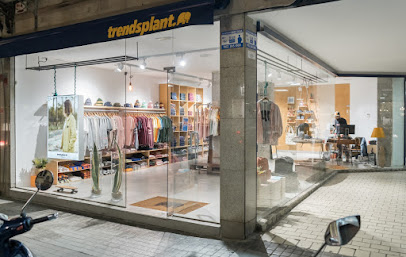
ALE-HOP
Discover unique souvenirs and quirky gifts at ALE-HOP, a vibrant shop in Alicante that captures the spirit of local culture!
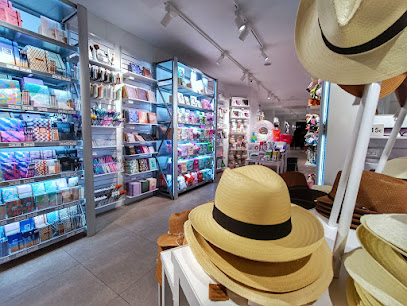
ALABAMA
Discover stylish women's clothing and unique designs at Alabama, Alicante's fashion hub offering quality and variety for every taste.
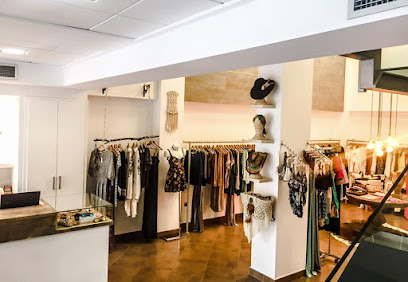
GORE
Discover stylish men's clothing and dresses at GORE, the premier boutique in Alicante offering exceptional quality and personalized service.
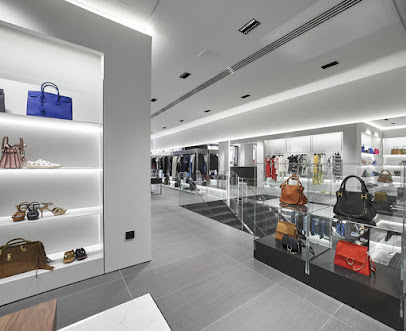
Morgan Alicante
Discover the latest women's fashion trends at Morgan Alicante, your stylish shopping destination in the heart of Alicante.
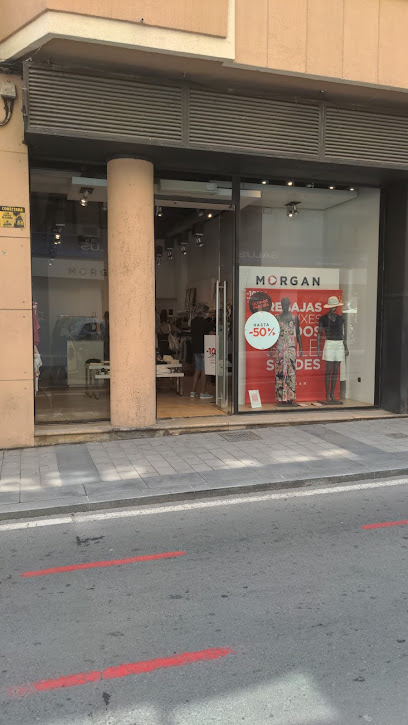
Stop And Look
Explore the heart of Alicante at 'Stop And Look', your go-to souvenir store for local crafts and unforgettable mementos.
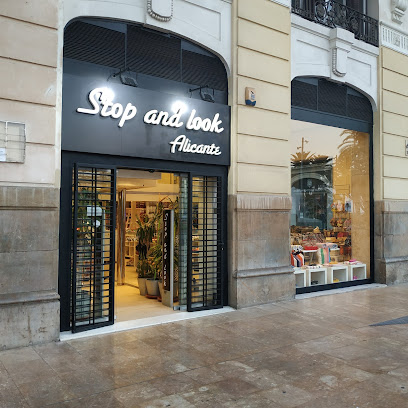
Pin-Up Vintage
Explore the enchanting world of Pin-Up Vintage in Alicante, where nostalgia meets fashion in a delightful antique store bursting with unique finds.
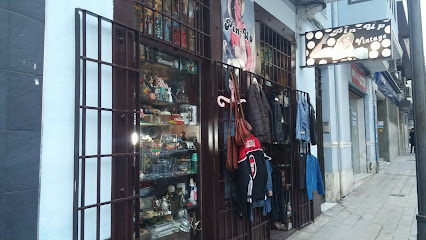
STYLE EX
Explore STYLE EX in Alicante for unique clothing that embodies the vibrant spirit of the city, showcasing local designers and diverse fashion styles.
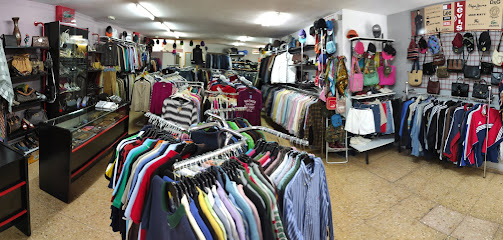
Essential bars & hidden hideouts
Cromwell's
Discover Cromwell's in Alicante, where vibrant nightlife meets a warm atmosphere, perfect for unwinding after a day of exploration.
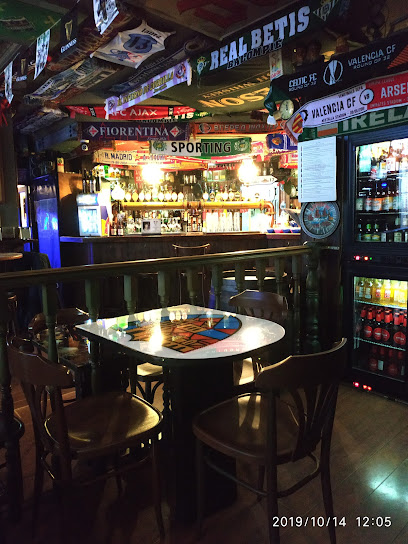
26 Cocktail Room
Experience Alicante's vibrant nightlife at 26 Cocktail Room, serving innovative cocktails in a chic atmosphere.
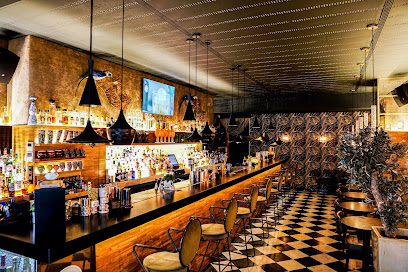
The Little Duke
Experience authentic Irish hospitality at The Little Duke, an inviting pub in Alicante offering great drinks, delicious food, and lively entertainment.
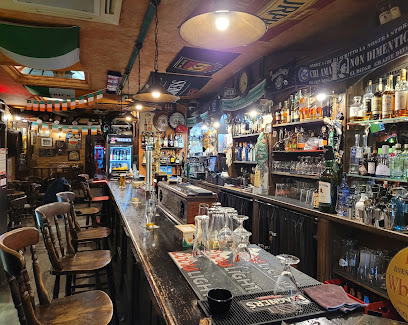
Ten 10
Experience the vibrant nightlife of Alicante at Ten 10, where cocktails, coffee, and live music create unforgettable memories.
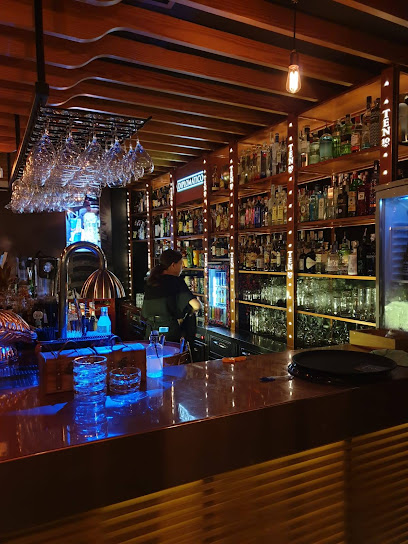
Jendrix Rock Bar - Alicante
Experience the vibrant nightlife at Jendrix Rock Bar in Alicante - where live piano music and cocktails create unforgettable memories.
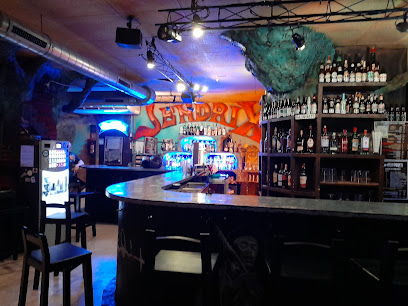
Parabarap
Discover Parabarap in Alicante: a vibrant pub and nightclub offering an unforgettable nightlife experience with great drinks and lively music.
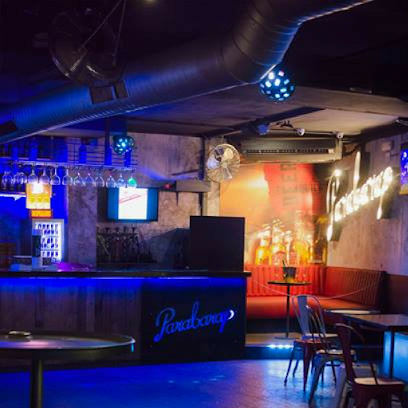
AUSTIN
Experience the heart of Texas in Austin, where music, food, and culture blend to create an unforgettable adventure.
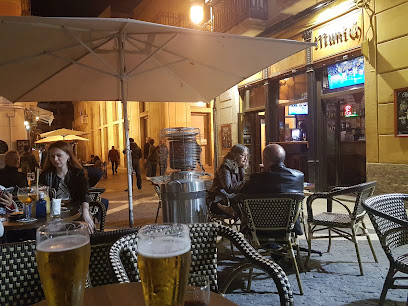
Canibal Lounge Pub
Experience the lively atmosphere and affordable drinks at Canibal Lounge Pub, a vibrant nightlife destination in Alicante.
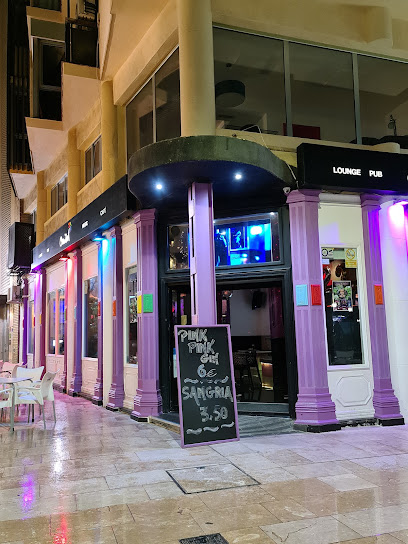
Syrah Wine Bar
Discover the allure of Syrah Wine Bar, where exquisite wines meet delicious tapas in the heart of Alicante, Spain.
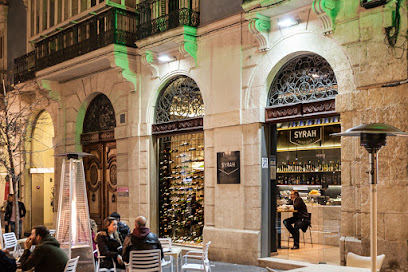
The Whisper Cocktail Company | Cocteles y Combinados
Experience the finest cocktails and vibrant nightlife at The Whisper Cocktail Company, Alicante's top cocktail bar and club.
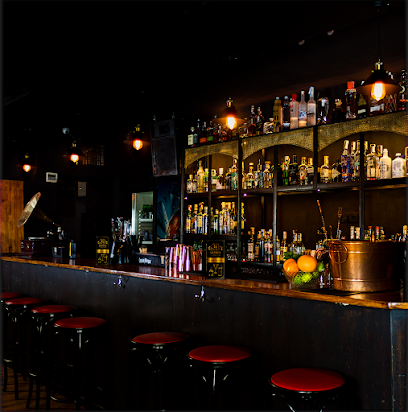
O'hara Irish Pub
Discover O'hara Irish Pub in Alicante, where Irish charm meets Spanish warmth, offering great drinks, hearty food, and live entertainment.
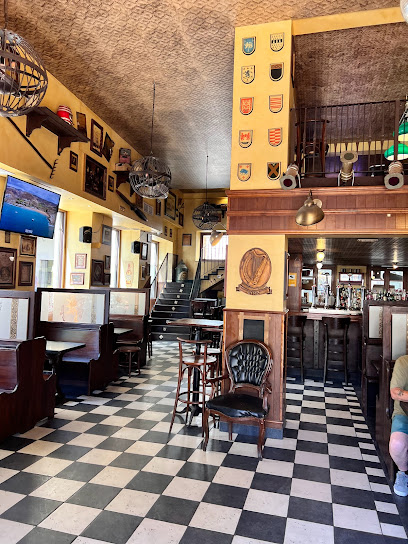
Söda Bar
Experience the vibrant nightlife at Söda Bar, Alicante's premier piano bar offering delightful cocktails and live music in a stylish atmosphere.
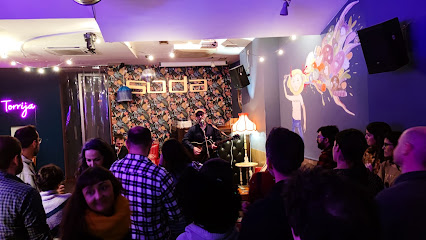
The Duke
Experience the vibrant rock 'n' roll culture at The Duke, Alicante's premier beer hall with live music and a diverse selection of local brews.
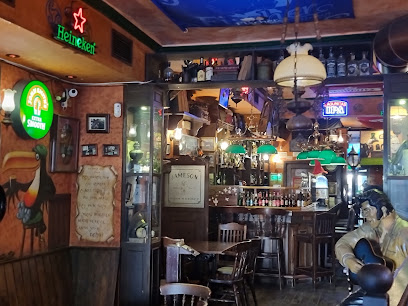
Oculto Alicante
Experience the vibrant nightlife of Alicante at Oculto, a cocktail bar renowned for its innovative drinks and stunning ambiance.
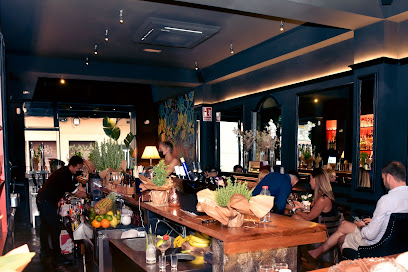
Local Phrases
-
- HelloHola
[oh-lah] - GoodbyeAdiós
[ah-dee-ohs] - YesSí
[see] - NoNo
[noh] - Please/You're welcomePor favor/De nada
[por fah-vor/deh nah-dah] - Thank youGracias
[grah-thyahs] - Excuse me/SorryPerdón/Lo siento
[pehr-dohn/loh see-ehn-toh] - How are you?¿Cómo estás?
[koh-moh ehs-tahs] - Fine. And you?Bien. ¿Y tú?
[byehn. ee too] - Do you speak English?¿Hablas inglés?
[ah-blahs een-glehs] - I don't understandNo entiendo
[noh ehn-tee-ehn-doh]
- HelloHola
-
- I'd like to see the menu, pleaseMe gustaría ver la carta, por favor
[meh goos-tah-ree-ah behr lah kahr-tah, por fah-vor] - I don't eat meatNo como carne
[noh koh-moh kahr-neh] - Cheers!¡Salud!
[sah-loohd] - I would like to pay, pleaseMe gustaría pagar, por favor
[meh goos-tah-ree-ah pah-gahr, por fah-vor]
- I'd like to see the menu, pleaseMe gustaría ver la carta, por favor
-
- Help!¡Ayuda!
[ah-yoo-dah] - Go away!¡Vete!
[veh-teh] - Call the Police!¡Llama a la policía!
[yah-mah ah lah poh-lee-see-ah] - Call a doctor!¡Llama a un médico!
[yah-mah ah oon meh-dee-koh] - I'm lostEstoy perdido
[ehs-toy pehr-dee-doh] - I'm illEstoy enfermo
[ehs-toy ehn-fehr-moh]
- Help!¡Ayuda!
-
- I'd like to buy...Me gustaría comprar...
[meh goos-tah-ree-ah kohm-prahr...] - I'm just lookingSolo estoy mirando
[soh-loh ehs-toy mee-rahn-doh] - How much is it?¿Cuánto cuesta?
[kwan-toh kwehs-tah] - That's too expensiveEsto es demasiado caro
[ehs-toh ehs deh-mah-see-ah-doh kah-roh] - Can you lower the price?¿Puedes bajar el precio?
[pweh-dehs bah-hahr ehl pree-eh-soh]
- I'd like to buy...Me gustaría comprar...
-
- What time is it?¿Qué hora es?
[keh oh-rah ehs] - It's one o'clockEs la una
[ehs lah oo-nah] - Half past (10)Las diez y media
[lahs dyehs ee meh-dee-ah] - MorningMañana
[mah-nyah-nah] - AfternoonTarde
[tahr-deh] - EveningNoche
[noh-cheh] - YesterdayAyer
[ah-yehr] - TodayHoy
[oy] - TomorrowMañana
[mah-nyah-nah] - 1Uno
[oo-noh] - 2Dos
[dohs] - 3Tres
[trehs] - 4Cuatro
[kwah-troh] - 5Cinco
[theen-koh] - 6Seis
[sehs] - 7Siete
[syeh-teh] - 8Ocho
[oh-choh] - 9Nueve
[nweh-veh] - 10Diez
[dyehs]
- What time is it?¿Qué hora es?
-
- Where's a/the...?¿Dónde está...?
[dohn-deh ehs-tah] - What's the address?¿Cuál es la dirección?
[kwal ehs lah dee-rehk-syohn] - Can you show me (on the map)?¿Puedes enseñarme (en el mapa)?
[pweh-dehs ehn-seh-nyahr-meh (ehn ehl mah-pah)] - When's the next (bus)?¿Cuándo es el próximo (autobús)?
[kwan-doh ehs ehl proh-ksee-moh (ow-toh-boos)] - A ticket (to ....)Un billete (a ...)
[oon bee-yeh-teh (ah ...)]
- Where's a/the...?¿Dónde está...?
History of Alicante
-
Alicante traces its origins back to the 4th century BC, when the Iberians established a settlement known as 'Akra Leuka' (White Peak) on the slopes of Mount Benacantil. This early period set the foundation for the city's strategic importance due to its prime location along the Mediterranean coast.
-
In 201 BC, the Romans conquered the Iberian settlement, renaming it 'Lucentum.' The city flourished under Roman rule, becoming an important commercial hub. Roman architectural and cultural influences can still be seen in the area, including remnants of Roman baths and amphitheaters.
-
During the 8th century, the Moors conquered Alicante, renaming it 'Al-Laqant.' Under Muslim rule, the city grew in importance as a center of trade and culture. The Castillo de Santa Bárbara, one of Alicante's most iconic landmarks, was originally constructed during this period to protect the city from invaders.
-
In 1247, Alicante was reconquered by the forces of King Alfonso X of Castile, marking the beginning of a new Christian era. The city was integrated into the Kingdom of Valencia in 1304. This period saw the construction of many of Alicante's historic buildings, including the Church of St. Mary, built on the site of a former mosque.
-
Alicante thrived during the Age of Exploration, particularly in the 15th and 16th centuries. Its port became a pivotal point for trade with the Americas and other parts of Europe. The city's wealth grew, as did its cultural and architectural richness, evidenced by structures like the Alicante Town Hall and the Basilica of Santa Maria.
-
The early 18th century brought turmoil with the War of Spanish Succession. In 1709, British forces occupied Alicante, causing significant damage to the city. The British occupation was short-lived, but it left a lasting impact on the city's fortifications and defenses.
-
The 19th and 20th centuries saw Alicante transform into a modern city. The arrival of the railway in 1858 and the development of the port spurred economic growth. Alicante also became a center for tourism, attracting visitors with its beautiful beaches, historic sites, and vibrant culture. The Spanish Civil War (1936-1939) left its mark, but the city's resilience led to a period of reconstruction and growth in the post-war years.
-
Today, Alicante is renowned for its rich cultural heritage and lively festivals. The city celebrates numerous events, with the most famous being 'Las Hogueras de San Juan' (Bonfires of Saint John), a vibrant festival held in June that includes parades, fireworks, and the burning of large wooden sculptures. These celebrations reflect Alicante's enduring spirit and cultural vibrancy.
Alicante Essentials
-
Alicante is well-connected by air, road, and rail. The Alicante-Elche Airport (ALC) is the main international gateway, located about 9 kilometers southwest of the city center. It has numerous flights connecting to major European cities. For those traveling by train, Alicante's main railway station, Alicante Terminal, is linked to major Spanish cities like Madrid, Barcelona, and Valencia through the high-speed AVE trains. You can also reach Alicante by car via the AP-7 motorway, which runs along the Mediterranean coast.
-
Alicante offers a variety of transportation options. The city's public transport system includes buses and trams operated by the Metropolitan Transport Consortium. The tram network (TRAM Metropolitano) is particularly convenient for reaching coastal areas and nearby towns. Taxis are readily available and can be hailed on the street or booked via phone. Ride-sharing services like Uber are also operational. For those who prefer cycling, Alicante has a bike-sharing program called 'Alicante Bici' with various stations across the city.
-
The official currency in Spain is the Euro (€). Credit and debit cards are widely accepted in Alicante, including in most hotels, restaurants, and shops. ATMs are plentiful, especially in tourist areas, allowing you to withdraw cash as needed. It is always a good idea to carry some cash for small purchases, especially in local markets or smaller establishments where card payments might not be accepted.
-
Alicante is generally a safe city for tourists, but it's important to stay vigilant, especially in crowded tourist areas like the Explanada de España and the Old Town (El Barrio). Be cautious of pickpockets and avoid displaying valuable items. Certain neighborhoods, such as the area around the central bus station, can be less safe at night, so it's advisable to stay in well-lit, populated areas. Always keep an eye on your belongings and be aware of your surroundings.
-
In case of emergency, dial 112 for immediate assistance. This number connects you to police, fire services, and medical emergencies. Alicante has several hospitals and medical centers, including the Hospital General Universitario de Alicante and the Hospital Vithas Perpetuo Socorro. Pharmacies are widely available, and many are open 24 hours. It's advisable to carry travel insurance that covers medical emergencies and other unexpected events.
-
Fashion: Do dress comfortably but stylishly, as locals tend to value appearance. Avoid overly casual attire in upscale restaurants. Religion: Do respect religious customs, especially in churches. Dress modestly and remain quiet. Public Transport: Do validate your ticket before boarding and keep it with you. Don’t eat or drink on public transport. Greetings: Do greet people with a handshake. In informal settings, two kisses on the cheek are common. Eating & Drinking: Do try local cuisine and tapas. Don’t rush through meals; dining is a social experience.
-
To experience Alicante like a local, visit the Mercado Central to buy fresh produce and enjoy local delicacies. Spend time at Postiguet Beach or venture to the nearby Playa de San Juan, a favorite among locals. For a cultural experience, attend a traditional fiesta like Hogueras de San Juan in June. Explore the Santa Cruz neighborhood for its charming narrow streets and vibrant atmosphere. Don't miss sampling turrón, a local nougat-like sweet, from one of the traditional shops.
Trending Landmark in Alicante
-
Castell de Santa Bàrbara
-
Archaeological Museum of Alicante
-
Parc El Palmeral
-
Alicante Bullring
-
Cocatedral de Sant Nicolau de Bari d'Alacant
-
Plaça Sèneca
-
Parc Canalejas
-
El Carrer dels Bolets
-
Parc de l'Ereta
-
Basilica of St Mary of Alicante
-
Casa Carbonell
-
Santa Faz Monastery, Alicante
-
Castell de Sant Ferran
-
Plaça de la Porta de la Mar
-
Cabo de La Huerta
Nearby Cities to Alicante
-
Things To Do in Murcia
-
Things To Do in Valencia
-
Things To Do in Teruel
-
Things To Do in Almeria
-
Things To Do in Oran
-
Things To Do in Palma de Mallorca
-
Things To Do in Tarragona
-
Things To Do in Toledo
-
Things To Do in Algiers
-
Things To Do in Madrid
-
Things To Do in Zaragoza
-
Things To Do in Lleida
-
Things To Do in Málaga
-
Things To Do in Tlemcen
-
Things To Do in Barcelona


















